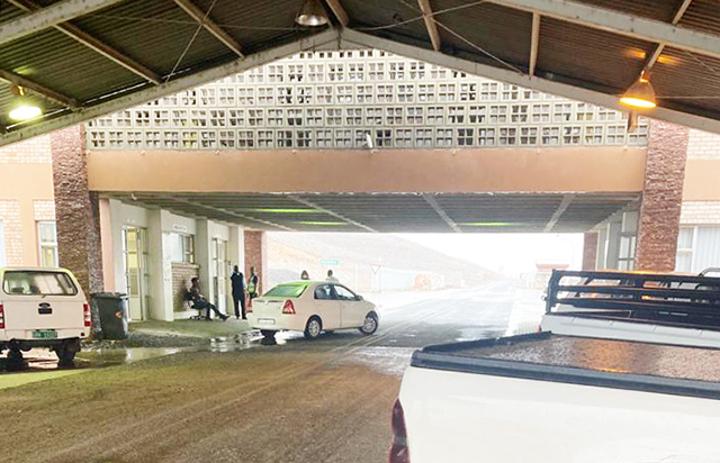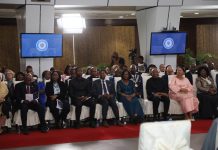Africa-Press – Namibia. THE Ministry of Finance will launch an investigation into an alleged syndicate of customs officials who are believed to be working with clearing agents to swindle money out of Namibians living in South Africa.
Namibians who travelled home for the festive season have accused customs officials at the Noordoewer border post of demanding bribes of up to N$60 000 to allow them to enter the country with their South African-registered vehicles. “N$60 000 for what? Because the provisional customs payment is based on the value of the specific item that is being brought into the country. This is security in case the vehicle or the machinery does not leave the country,” Boas Haikonda, the deputy commissioner of customs in the //Kharas region, yesterday said. Bribes are alleged to start at N$60 000 for import duties – depending on the make of a vehicle. It is further alleged that bribes have to be paid in cash through an agent, and not directly to customs officials. If a motorist does not have the required amount, the price is reportedly negotiated down to N$2 000, in which case the money must be deposited into a trash can. Refunds allegedly take up to two months as the money is paid over to the Bank of Namibia, and needs to be requested by the said agent. A Namibian, who reported an incident, spoke to The Namibian anonymously for fear of victimisation upon his return to South Africa.He says he was asked to pay a bribe, and was threatened with being sent back to South Africa after many enquiries.“I could not return to South Africa with my children after all the effort put into this journey. I agreed to pay the N$2 000, but the officer told me to drop the money into a trash can and drive off. I went to my car, took some papers, dropped it in the bin and left,” the man says.After two weeks in Namibia, the man returned to South Africa and said no one asked him for any document at the Noordoewer border post. “This is when I realised something is fishy. They were so worked up asking me for money when I was coming home. And now they did not even ask for the vehicle’s registration. “They must be doing this to many people – especially to Angolans who will avoid confrontation with foreign law officials,” he says. Risto Shekundja, a Namibian businessman living in Cape Town, was held up at the border for hours because he did not understand the explanation given to him about a provisional payment to bring his vehicle into the country. As a result, his Covid-19 test results expired and his holiday was cut short as he had to go into mandatory quarantine.He had to send his children, who are South Africans, back to South Africa and leave his vehicle at the border post. “The whole thing was not explained properly by the official, and it is not public knowledge. I have never come across such information. I was going to spend that money in Namibia, and I even showed them my previous receipt when I entered the country with the same vehicle. We are being abused by our own people,” Shekundja says. He suggests that the Ministry of Finance invest in a system that logs all foreign vehicles entering the country, and should anyone wish to register their vehicle in Namibia, they should then be required to pay import tax. Ministry spokesperson Tonateni Shidhudhu says travellers are expected to make provisional payments (PP) when entering the country with their vehicles. “It was also explained to him (Shekundja) that he needs to lodge the PP as a guarantee, which he will claim back if he happened to re-export his car, but he didn’t want to understand. He was also informed that payment can be done through EFT,” he says. Shidhudhu advises travellers to address their complaints to the acting commissioner of customs and excise, or their chief public relations officer.Haikonda says customs officials are permitted to ask motorists to make provisional payments meant to control foreign-registered vehicles if there is a high risk that the vehicle will not leave Namibia as required by law.He says customs officials cannot dictate which method of payment must be used.Payment options available include cash, EFT or payments made at any customs office in the country. Haikonda says the refund period is not fixed, but may take up to 30 days, depending on the submission of all required documents. He says clearing agents act on behalf of importers and exporters, clearing goods with customs.






